- Home
- Robert B. Parker
Mortal Stakes s-3 Page 8
Mortal Stakes s-3 Read online
Page 8
She seemed unimpressed and I left.
CHAPTER SEVEN
I TOOK A POLAROID camera with me when I visited Linda Rabb.
“I want to think about graphics, maybe a coffee table book,” I told her. “Maybe a big format.”
She was in blue jeans, barefoot, a ribbon in her hair, her makeup fresh. On a twenty-five-inch color console in the living room, Buck Maynard was calling the play by play. “Ah want to tell ya, Holly West could throw a lamb chop past a wolf pack, Doc. He gunned Amos Otis down by twenty feet.”
“Great arm, Buck,” Wilson said, “a real cannon back there.”
I snapped some pictures of Linda and the living room from different angles.
“Do you get nervous watching Marty pitch, Linda?” I lay on the floor to get an exotic angle, shooting up through the glass top of the coffee table.
“No, not so much anymore. He’s so good, you know-it’s more, I’m surprised when he loses. But I don’t worry.”
“Does he bring it home or leave it at the park?”
“When he loses? He leaves it there. Unless you’ve been watching the game, you don’t know if he won or lost when he comes in the door. He doesn’t talk about it at all. Little Marty barely knows what his father does.”
I placed the five color shots on the coffee table in front of Linda Rabb.
“Which one do you like best?” I said. “They’re only idea shots; if the publishers decide to go to the big picture format, we’ll use a pro.” I sounded like Arthur Author—it pays to listen to the Carson show.
She picked up the last one on the left and held it at an angle to the light.
“This is an interesting shot,” she said. It was the one I’d taken from floor level. It was interesting. Casey Crime Photographer.
“Yeah, that’s good,” I said. “I like that one too.” I took it from her and put it in an envelope. “How about the others?”
She looked at several more. “They’re okay, but the one I gave you first is my favorite.”
“Okay,” I said. “We agree.” I scooped the other four into a second envelope.
Bucky Maynard said, “We got us a real barn burner here, Doc. Both pitchers are hummin‘ it in there pretty good.”
“You’re absolutely right, Bucky. A couple of real fine arms out there tonight.”
I stood up. “Thank you, Linda. I’m sorry to have barged in on you like this.”
“That’s okay. I enjoyed it. The only thing is, I don’t know about pictures of me, or of the baby. Marty doesn’t like to have his family brought into things. I mean, we’re very private people. Marty may not want you to do pictures.”
“I can understand that, Linda. Don’t worry. There are lots of people on the team, and if we decide to go to visuals, we can use some of them if Marty objects.”
She shook my hand at the door. It was a bony hand and cold.
Outside, it was dark now, and the traffic was infrequent. I walked up Mass Ave toward the river, crossing before I got to Boylston Street to look at the Spanish melons in the window of a gourmet food shop. Mingled with the smell of automobiles and commerce were the thin, damp smell of the river and the memory of trees and soil that the city supplanted. At Marlborough I turned right and strolled down toward my apartment. The small trees and the flowering shrubs in front of the brick and brownstone buildings enhanced the river smell.
It was nine fifteen when I got in my apartment. I called the Essex County DA’s office on the chance that someone might be there late. Someone was, probably an assistant DA working up a loan proposal so he could open an office and go into private practice.
“Lieutenant Healy around?” I asked.
“Nope, he’s working out of ten-ten Commonwealth, temporary duty, probably be there a couple of months. Can I do anything for you?”
I said no and hung up.
I called state police headquarters at 1010 Commonwealth Ave in Boston. Healy wasn’t in. Call back in the morning. I hung up and turned on the TV. Boston had a two-run lead over Kansas City. I opened a bottle of Amstel beer, lay down on my couch, and watched the ball game. John Mayberry tied the game with a one-on home run in the top of the ninth, and I went through three more Amstels before Johnny Tabor scored from third on a Holly West sacrifice fly in the eleventh inning. While the news was on, I made a Westphalian ham sandwich on pumpernickel, ate it, and drank another bottle of Amstel. A man needs sustenance before bed. I might have an exciting dream. I didn’t.
Next morning I drove over to 1010 Commonwealth.
Healy was in his office, his coat off, the cuffs of his white shirt turned back, but the narrow black knit tie neat and tight around the short, pointed collar. He was medium height, slim, with a gray crew cut and pale blue eyes like Paul Newman.
He looked like a career man in a discount shirt store. Five years ago he had gone into a candy store unarmed and rescued two hostages from a nervous junkie with a shotgun. The only person hurt was the junkie.
He said, “What do you want, Spenser?” I was always one of his favorites.
I said, “I’m selling copies of the Police Gazette and thought you might wish to keep abreast of the professional developments in your field.”
“Knock off the horse crap, Spenser, what do you want?”
I took out the envelope containing my Polaroid picture of Marty Rabb’s coffee table.
“There’s a photograph in here with two sets of prints on it. One set is mine. I want to know who the other one belongs to. Can you run it through the FBI for me?”
“Why?”
“Would you buy, I’m getting married and want to run a credit check on my bride-to-be?”
“No.”
“I didn’t think so. Okay. It’s confidential. I don’t want to tell you if I don’t have to. But I gotta know, and I’ll give you the reasons if you insist.”
“Where do you buy your clothes, Spenser?”
“Aha, bribery. You want the name of my tailor, because I’m your clothing idol.”
“You dress like a goddamned hippie. Don’t you own a tie?”
“One,” I said. “So I can eat in the main dining room at the Ritz.”
“Gimme the photo,” Healy said. “I’ll let you know what comes back.”
I gave him the envelope. “Tell your people to try and not get grape jelly and marshmallow fluff all over the photo, okay?”
Healy ignored me. I left.
Going out, I got a look at myself in the glass doors. I had on a red and black paisley sport coat, a black polo shirt, black slacks, and shiny black loafers with a crinkle finish and gold buckles. Hippie? Healy’s idea of aggressive fashion was French cuffs. I put on my sunglasses, got in my car, and headed down Commonwealth toward Kenmore Square. The top was down and the seat was quite hot. Not a single girl turned to stare at me as I went by.
CHAPTER TWELVE
THIRTEENTH STREET WAS a twenty-five-minute walk downtown and 116 was in the East Village between Second and Third.
There was a group of men outside 116, leaning against the parked cars with their shirts unbuttoned, smoking cigarettes and drinking beer from quart bottles. They were speaking Spanish. One Sixteen was a four-story brick house, which had long ago been painted yellow and from which the paint peeled in myriad patches. Next to it was a six-story four-unit apartment building newly done in light gray paint with the door and window frames and the fire escapes and the railing along the front steps a bright red. The beer drinkers had a portable radio that played Spanish music very loudly.
I went up the four steps to number 116 and rang the bell marked CUSTODIAN. Nothing happened, and I rang it again.
One of the beer drinkers said, ”Don’t work, man. Who you want?“
”I want the manager.“
”Inside, knock on the first door.“
”Thanks.“
In the entry was an empty bottle of Boone’s Farm apple wine and a sneaker without laces. Stairs led up against the left wall ahead of me, and a brief corrido
r went back into the building to the right of the stairs. I knocked on the first door and a woman answered the first knock.
She was tall and strongly built, olive skin and short black hair. A gray streak ran through her hair from the forehead back. She had on a man’s white shirt and cutoff jeans.
Her feet were bare, and her toenails were painted a dark plum color. She looked about forty-five.
I said, ”My name is Spenser. I’m a private detective from Boston, and I’m looking for a girl who lived here once about eight years ago.“
She smiled and her teeth were very white and even.
”Come in,“ she said. The room was large and square, and a lot of light came in through the high windows that faced out onto the street. The walls and ceiling were white, and there were red drapes at the windows and a red rug on the floor. In the middle of the room stood a big, square, thick-legged wooden table with a red linoleum top, a large bowl of fruit in the center and a high-backed wooden chair at either end. She gestured toward one of the chairs. ”Coffee?“ she said..
”Yes, thank you.“
I sat at the table and looked about the room while she disappeared through a bead-curtained archway to make the coffee. There was a red plush round-back Victorian sofa with mahogany arms in front of the windows and an assortment of Velazquez prints on the wall. She came back in with a carafe of coffee and two white china mugs on a round red tray.
”Cream or sugar?“
I shook my head. She poured the coffee into the cups, gave me one, and sat down at the other end of the table.
”The coffee is wonderful,“ I said.
”I grind it myself,“ she said. ”My name is Rose Estrada. How can I help you?“ There was a very small trace of another language in her speech.
I took out the picture of Linda Rabb that I’d taken at her apartment. ”This is a recent picture of a girl named Donna Burlington. In nineteen sixty-six, from August to November, she lived at this address. Can you tell me anything about her?“
She thought aloud as she looked at the picture. ”Nineteen sixty-six, my youngest would have been ten… Yes, I remember her, Donna Burlington. She came from somewhere in the Midwest. She seemed very young to be alone in New York, far from home. She was with a boy for a little while, but he didn’t stay.“
”What happened to her when she left you, do you know?“
”No.“
”No forwarding address?“
”None. I remember she had no money and was behind in her rent, and I sent her down to the welfare people on Thirty-fourth Street. And then one day she gave me all the back room rent in cash and moved out.“
”Any idea where she got the money?“
”I think she was hustling.“
”Prostitute?“
She nodded. ”I can’t be sure, but I know she was out often and she brought men home often and she used to spend time with a pimp named Violet.“
”Is he still around?“
”Oh sure. People like Violet are around forever.“
”Where do I find him?“
”He’s usually on Third Avenue, in front of the Casa Grande near Fifteenth.“
”What’s his full name?“
She shrugged. ”Just Violet,“ she said. ”More coffee?“
”Thank you.“ I held my cup out, and she poured from the carafe. Her hands were strong and clean, the fingernails the same plum color as her toenails. No rings. Outside I could hear the portable radio playing and occasionally the voices of the men drinking beer.
”She was a very small, thin, little girl,“ Rose Estrada said. ”Very scared. She didn’t want to be here, but she didn’t want to go home. She didn’t know anything about makeup or clothes. She didn’t know what to say to people. If she was turning tricks, it must have been very hard on her.“
I finished my coffee and stood. ”Thank you for the coffee and for the information,“ I said.
”Is she in trouble?“
”No, I don’t think so,“ I said. ”Nothing I can’t get her out of.“
We shook hands and I left. The street seemed hot and noisy after Rose Estrada’s apartment. I walked the half block to Third Ave and turned uptown. At the corner of Fourteenth Street a man in a covert cloth overcoat was urinating against the brick wall of a variety store. He was having trouble standing and lurched against the wall, holding his coat around him with one hand. Modesty, I thought, if you’re going to whiz on a wall, do it with modesty. A few feet downstream another man was lying on the sidewalk, knees bent, eyes closed.
Drinking buddies. I looked at my watch, it was two thirty in the afternoon.
At the corner of Fifteenth Street was a bar with a fake fieldstone front below a plate glass window. The entry to the left of the window was imitation oak. A small neon sign said CASA GRANDE, BEER ON DRAFT. At the curb in front of the Casa Grande were a white Continental and a maroon Coupe de Ville with a white vinyl roof. Leaning against the Coupe de Ville was a man who’d seen too many Superfly movies. He was a black man probably six-three in his socks and about six-seven in the open-toed red platform shoes he was wearing.
He was also wearing red-and-black argyle socks, black knickers, and a chain mail vest. A black Three Musketeers’ hat with an enormous red plume was tipped forward over his eyes. Subtle. All he lacked was a sign saying THE PIMP IS IN.
”Excuse me,“ I said, ”I’m looking for Violet.“
The pimp looked down at me from on top of his shoes and said, ”Why?“
”I was told he could give me information about a girl.“
”Someone’s talking shit to you, man. I don’t know nothing about no girl.“
”You Violet?“
He shrugged and looked down Third Avenue.
”I’m looking for information about a girl named Donna Burlington,“ I said.
The Lincoln started up, backed away from the curb, U-turned, and drove away.
”You federal?“ Violet said. ”I ain’t seen you around.“
”I’m not anything,“ I said. ”Just a guy looking to buy some information.“
”Well, I hope you got a license for that piece on your right hip then.“
Violet paid attention to detail. ”Okay.“ I took a card from my breast pocket and gave it to him. ”I’m a private cop.
From Boston. But I’m still buying information.“
”Baaahston.“ Violet laughed. ”Shit. What Donna do, steal some beans?“
”No, she stole some teenybopper clothes from a ladies’ dress shop and I think you’re wearing some of them.“
Violet laughed again. ”Hey, man, you want me to dress like one of you tight-assed honkies?“ He slapped one hand down on the hood of the Cadillac and whooped with laughter.
”Look at that little mother-loving Buster Brown suit. Shit.“
Tears were forming in his eyes.
”Look, Violet,“ I said. ”I didn’t come down here to write a sonnet about your Easter bonnet. How about I buy you a beer and we talk a little?“
”Yeah, why not, man? You said something about buying information?“
We went in the Casa Grande and sat at the bar. There was a Mets game on television down the bar. The bartender, a middle-aged man in a clean white shirt who looked like Gilbert Roland, came down and wiped the bar off in front of us.
”What’ll it be, gentlemen?“ he asked, looking carefully at a spot between my head and Violet’s.
”Two drafts,“ I said.
Violet said, ”Be cool, Hec, he’s okay. We just talking a little business.“
The bartender looked at me then. ”Okay, Violet,“ he said and drew the beers.
Violet took his hat off. His head was stark bald and smooth. ”Hec figured you for fuzz too. I hope you don’t think you working in disguise, man.“
I shook my head. ”You either,“ I said. Violet whooped again.
”What you want to know, man?“
I took out my picture of Donna Burlington and showed it to Violet. ”Know her eight year
s younger?“
”You mentioned buying. How much you buying for?“
”Fifty bucks.“
”That’s not much bread, man.“
”You don’t have to work very hard for it,“ I said. ”It’ll cover your next tankful in that brontosaurus out front.“
Violet nodded, drank half his beer, and said, ”Yeah, I remember Donna. Remembered her when you said her name.“
”Tell me about her.“
”A shit kicker,“ Violet said. ”Come from somewhere out in the woods. Real young when she worked for me.
Worked for me maybe six months.“
”How’d you meet her?“
”Her boyfriend was pimping her on my turf, man. I chased him off and she stayed with me.“
”She have any choice?“
Violet grinned. ”Not in this neighborhood, man.“
”How come you remember her so well?“
”She was white, man. Most of my chicks are black.“
”What happened to her?“
Violet shrugged. ”Moved uptown, fancy stuff, appointment only.“ He finished the beer. The bartender brought us two more without being asked.
”She work on her own?“
”Naw, she work for another broad, a madame, baby.
Very classy. Probably screwed only Baaahston dudes, dig?“
And again the whooping laugh.
”Can you give me the name?“
”I can get it, but that’s extra.“
”Another fifty?“
”That’s cool.“ Violet got up and went to a pay phone by the door. He was back in five minutes. ”Patricia Utley,“ he said. ”Fifty-seven East Thirty-seventh Street.“
”Thanks, Violet,“ I took a $100 bill out of my wallet and handed it to him. ”If you’re ever in Boston…“
Violet laughed again. ”Yeah, baby, if I ever want some beans…“
I finished the beer and got up. Violet turned and leaned his elbows on the bar. ”Hey, Spenser,“ he said. ”Utley works for very heavy people, dig?“
”That’s okay,“ I said. ”I don’t mind heavy work.“
”Well, you built for it, I give you that. But you walk around Utley careful, baby, this ain’t Boston.“

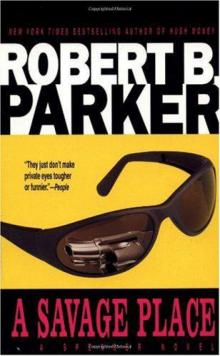 A Savage Place s-8
A Savage Place s-8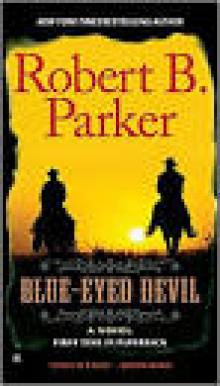 Appaloosa / Resolution / Brimstone / Blue-Eyed Devil
Appaloosa / Resolution / Brimstone / Blue-Eyed Devil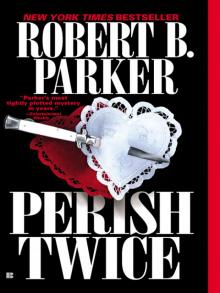 Perish Twice
Perish Twice Spare Change
Spare Change Family Honor
Family Honor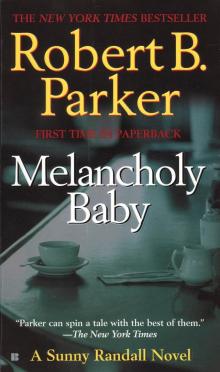 Melancholy Baby
Melancholy Baby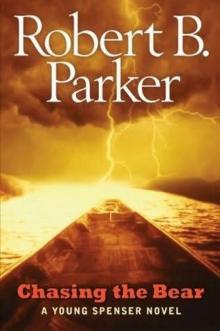 Chasing the Bear
Chasing the Bear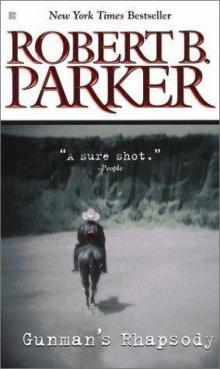 Gunman's Rhapsody
Gunman's Rhapsody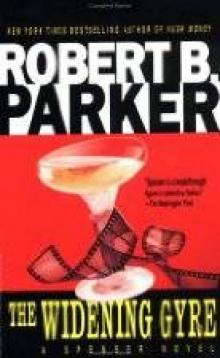 The Widening Gyre
The Widening Gyre Thin Air
Thin Air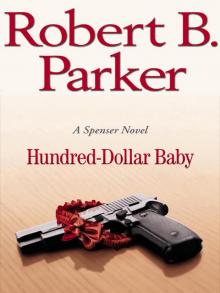 Hundred-Dollar Baby
Hundred-Dollar Baby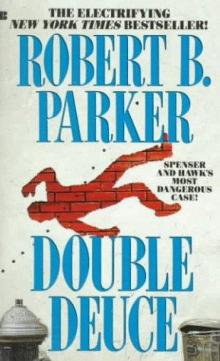 Double Deuce s-19
Double Deuce s-19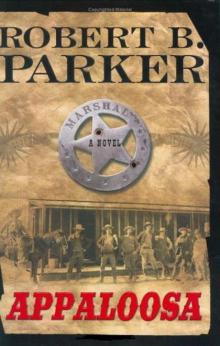 Appaloosa vcaeh-1
Appaloosa vcaeh-1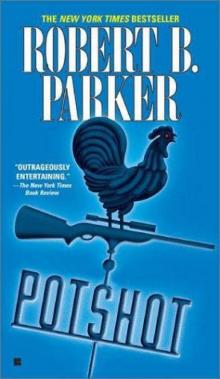 Potshot
Potshot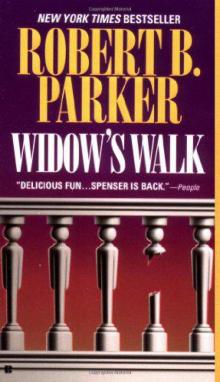 Widow’s Walk s-29
Widow’s Walk s-29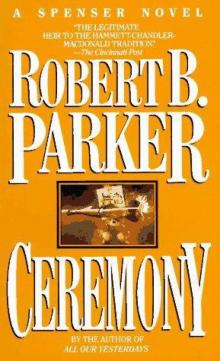 Ceremony s-9
Ceremony s-9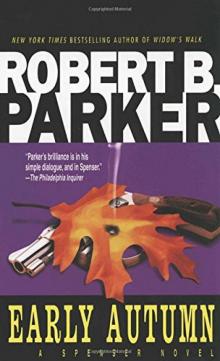 Early Autumn
Early Autumn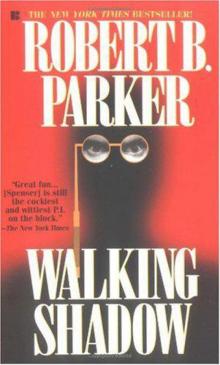 Walking Shadow s-21
Walking Shadow s-21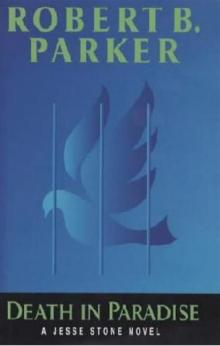 Death In Paradise js-3
Death In Paradise js-3 Shrink Rap
Shrink Rap Blue-Eyed Devil
Blue-Eyed Devil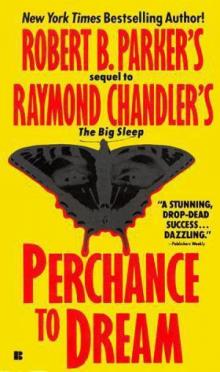 Perchance to Dream
Perchance to Dream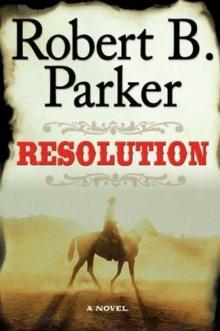 Resolution vcaeh-2
Resolution vcaeh-2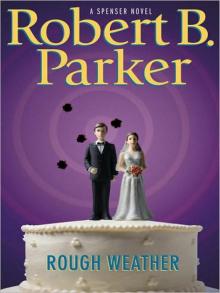 Rough Weather
Rough Weather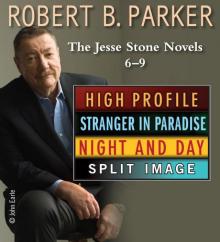 The Jesse Stone Novels 6-9
The Jesse Stone Novels 6-9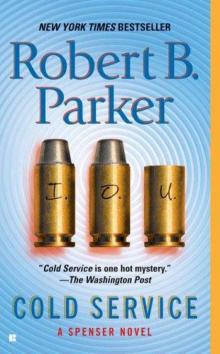 Cold Service s-32
Cold Service s-32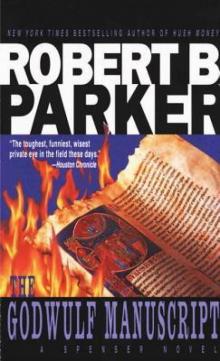 The Godwulf Manuscript
The Godwulf Manuscript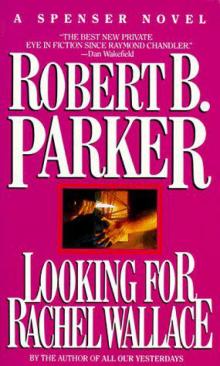 Looking for Rachel Wallace s-6
Looking for Rachel Wallace s-6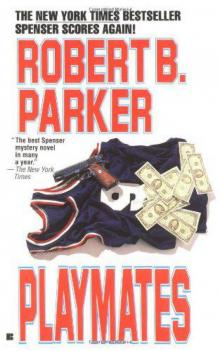 Playmates s-16
Playmates s-16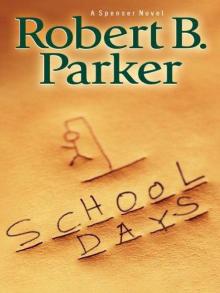 School Days s-33
School Days s-33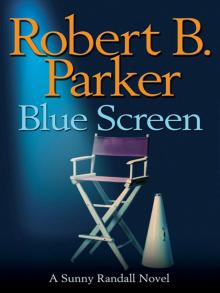 Blue Screen
Blue Screen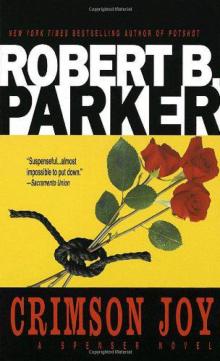 Crimson Joy
Crimson Joy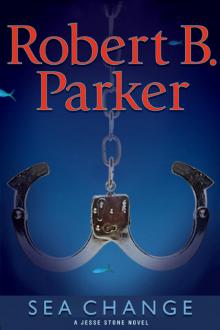 Sea Change js-5
Sea Change js-5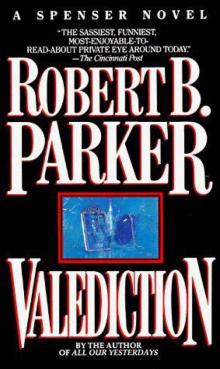 Valediction s-11
Valediction s-11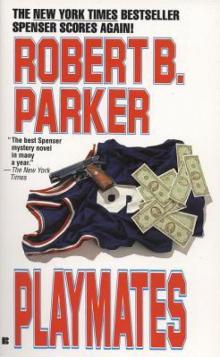 Playmates
Playmates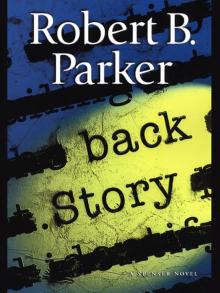 Back Story
Back Story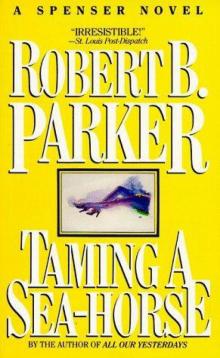 Taming a Sea Horse
Taming a Sea Horse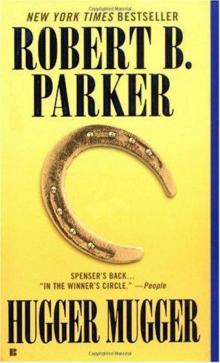 Hugger Mugger
Hugger Mugger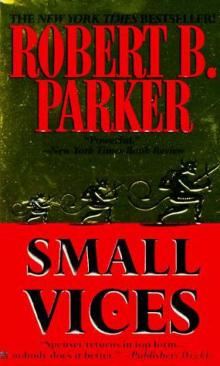 Small Vices s-24
Small Vices s-24 Silent Night: A Spenser Holiday Novel
Silent Night: A Spenser Holiday Novel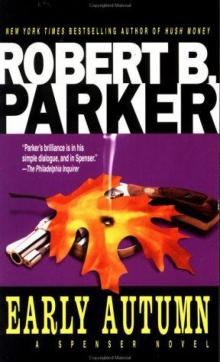 Early Autumn s-7
Early Autumn s-7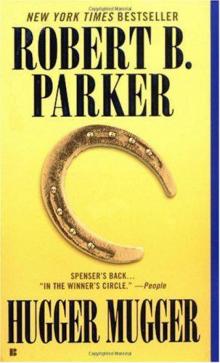 Hugger Mugger s-27
Hugger Mugger s-27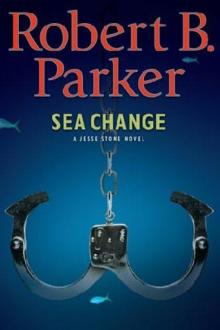 (5/10) Sea Change
(5/10) Sea Change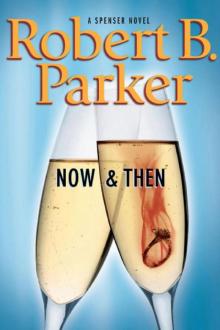 Now and Then
Now and Then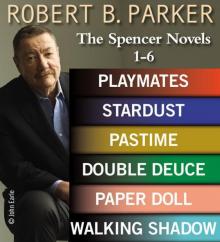 Robert B. Parker: The Spencer Novels 1?6
Robert B. Parker: The Spencer Novels 1?6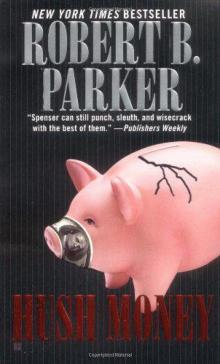 Hush Money s-26
Hush Money s-26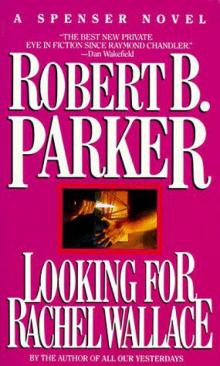 Looking for Rachel Wallace
Looking for Rachel Wallace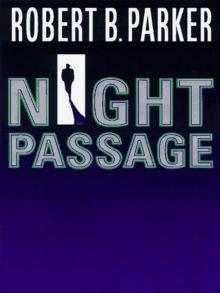 Night Passage
Night Passage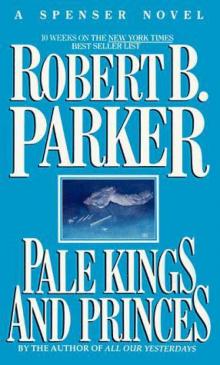 Pale Kings and Princes
Pale Kings and Princes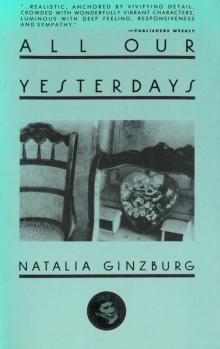 All Our Yesterdays
All Our Yesterdays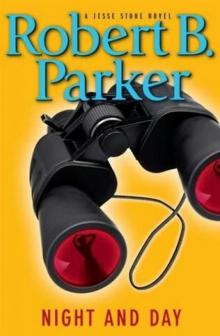 Night and Day js-8
Night and Day js-8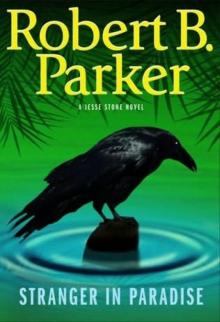 Stranger in Paradise js-7
Stranger in Paradise js-7 Double Play
Double Play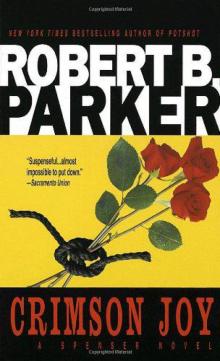 Crimson Joy s-15
Crimson Joy s-15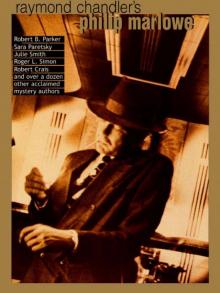 Raymond Chandler's Philip Marlowe
Raymond Chandler's Philip Marlowe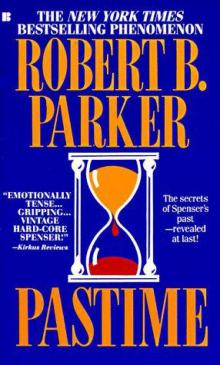 Pastime
Pastime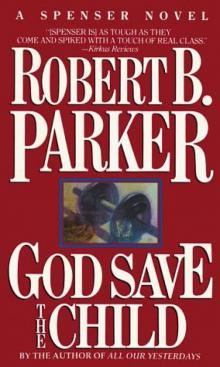 God Save the Child s-2
God Save the Child s-2 Bad Business
Bad Business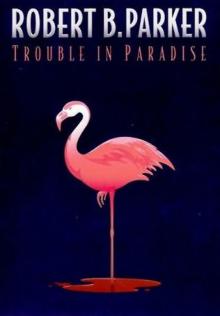 Trouble in Paradise js-2
Trouble in Paradise js-2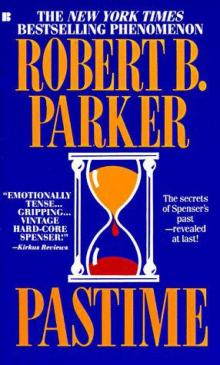 Pastime s-18
Pastime s-18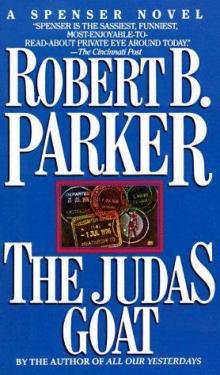 The Judas Goat s-5
The Judas Goat s-5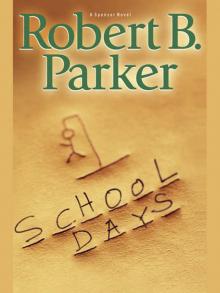 School Days
School Days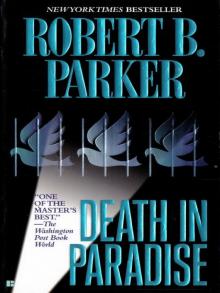 Death In Paradise
Death In Paradise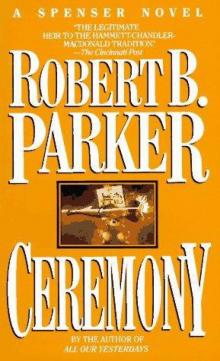 Ceremony
Ceremony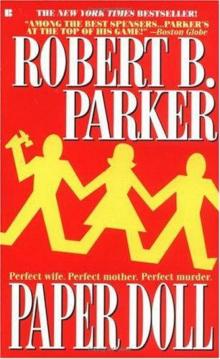 Paper Doll s-20
Paper Doll s-20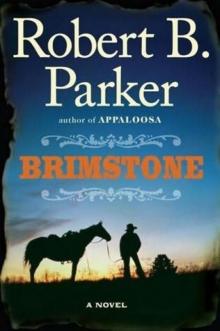 Brimstone vcaeh-3
Brimstone vcaeh-3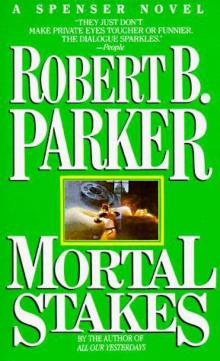 Mortal Stakes s-3
Mortal Stakes s-3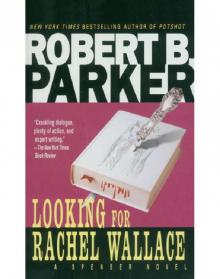 Spencer 06 - Looking for Rachel Wallace
Spencer 06 - Looking for Rachel Wallace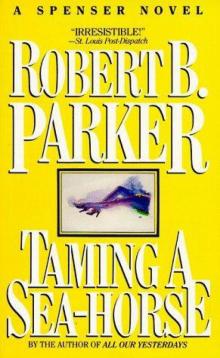 Taming a Sea Horse s-13
Taming a Sea Horse s-13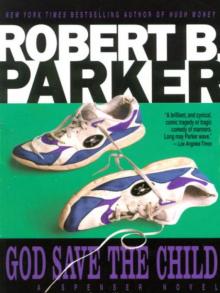 God Save the Child
God Save the Child Chance
Chance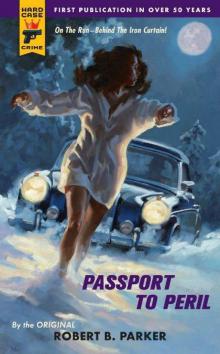 Passport To Peril hcc-57
Passport To Peril hcc-57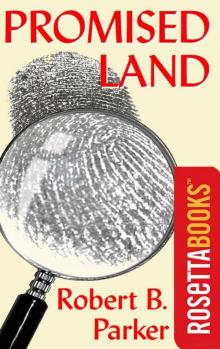 Promised Land
Promised Land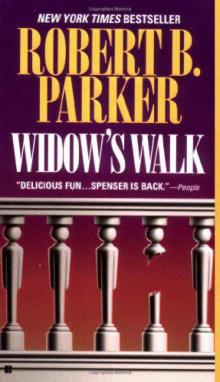 Widow’s Walk
Widow’s Walk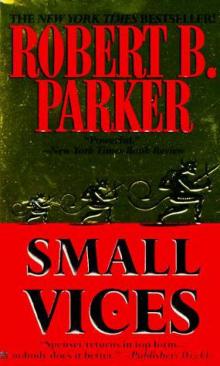 Small Vices
Small Vices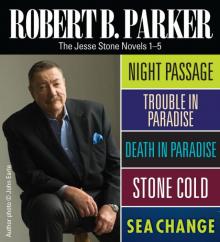 Robert B Parker: The Jesse Stone Novels 1-5
Robert B Parker: The Jesse Stone Novels 1-5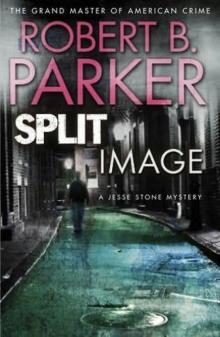 Split Image js-9
Split Image js-9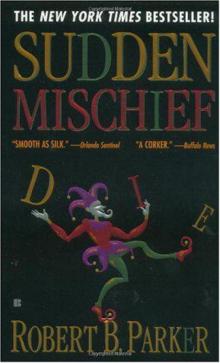 Sudden Mischief s-25
Sudden Mischief s-25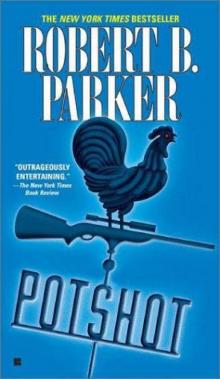 Potshot s-28
Potshot s-28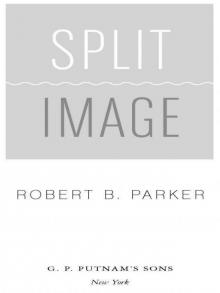 Split Image
Split Image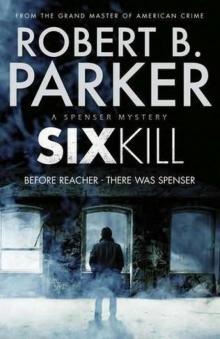 Sixkill s-40
Sixkill s-40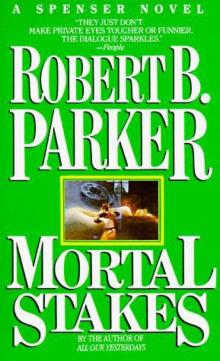 Mortal Stakes
Mortal Stakes Stardust
Stardust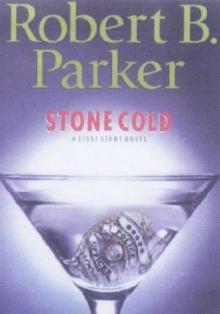 Stone Cold js-4
Stone Cold js-4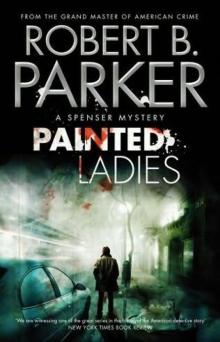 Painted Ladies s-39
Painted Ladies s-39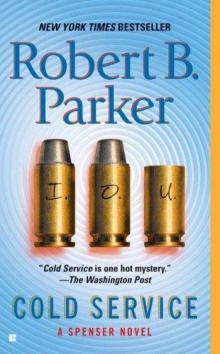 Cold Service
Cold Service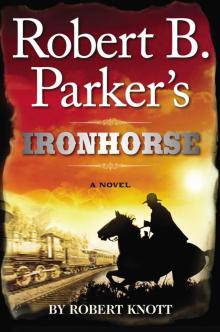 Ironhorse
Ironhorse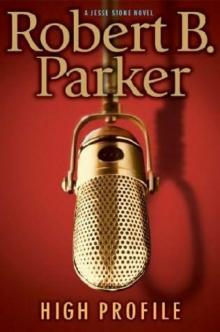 High Profile js-6
High Profile js-6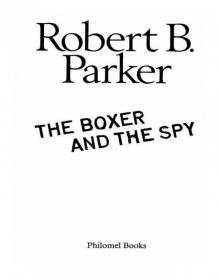 The Boxer and the Spy
The Boxer and the Spy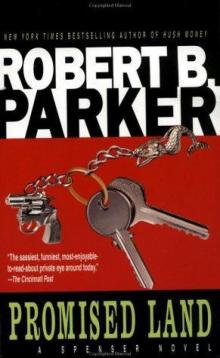 Promised Land s-4
Promised Land s-4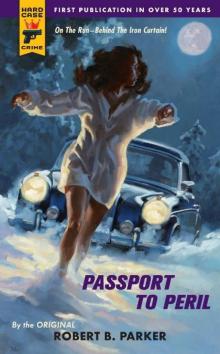 Passport to Peril (Hard Case Crime (Mass Market Paperback))
Passport to Peril (Hard Case Crime (Mass Market Paperback))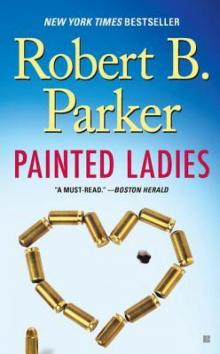 Painted Ladies
Painted Ladies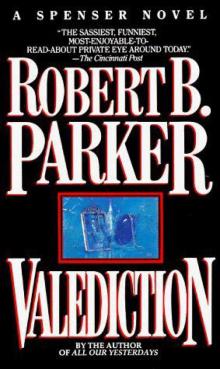 Valediction
Valediction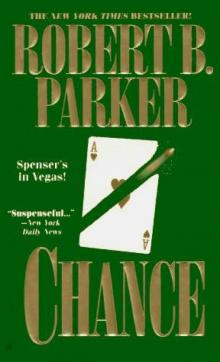 Chance s-23
Chance s-23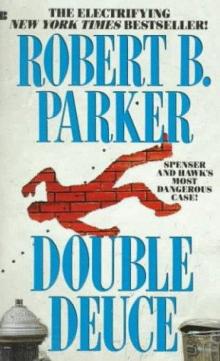 Double Deuce
Double Deuce Wilderness
Wilderness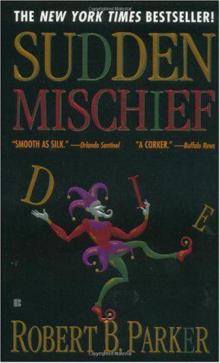 Sudden Mischief
Sudden Mischief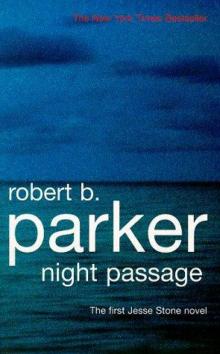 Night Passage js-1
Night Passage js-1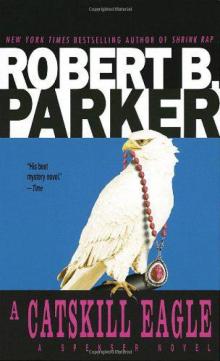 A Catskill Eagle
A Catskill Eagle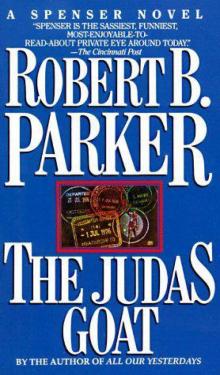 The Judas Goat
The Judas Goat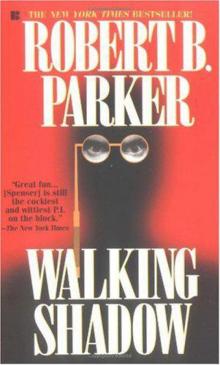 Walking Shadow
Walking Shadow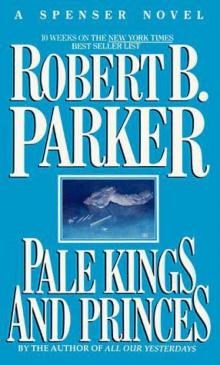 Pale Kings and Princes s-14
Pale Kings and Princes s-14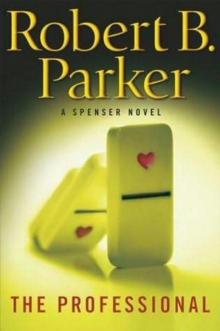 The Professional
The Professional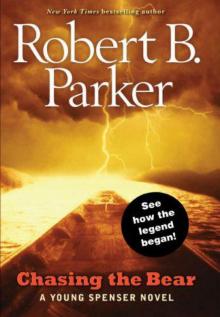 Chasing the Bear s-37
Chasing the Bear s-37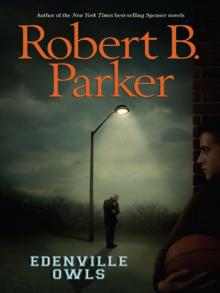 Edenville Owls
Edenville Owls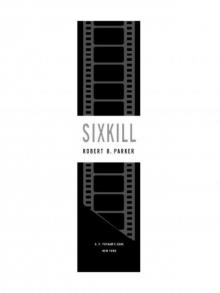 Sixkill
Sixkill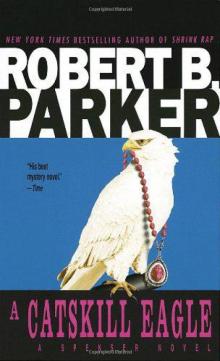 A Catskill Eagle s-12
A Catskill Eagle s-12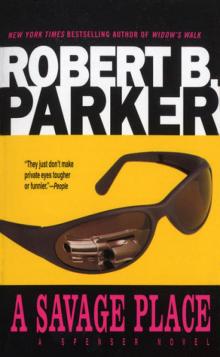 A Savage Place
A Savage Place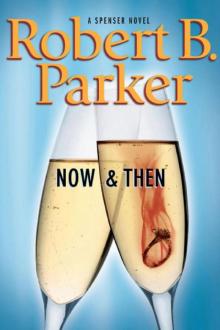 Now and Then s-35
Now and Then s-35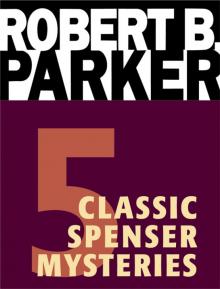 Five Classic Spenser Mysteries
Five Classic Spenser Mysteries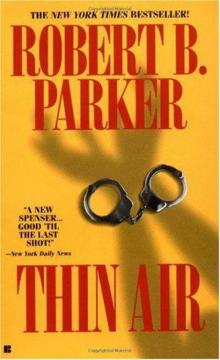 Thin Air s-22
Thin Air s-22